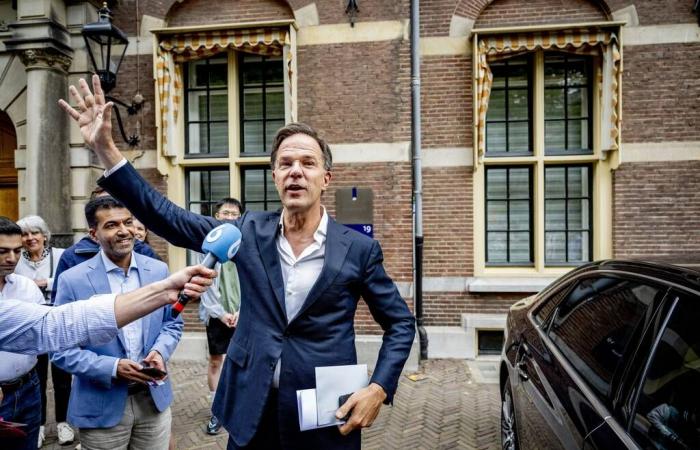“The scope of possibilities for secretaries general to fundamentally change what NATO does is therefore obviously very limited,” he adds.
The “secgen”, as it is nicknamed in Brussels, works “behind the scenes” on the emergence of decisions, which must then be approved by the 32 member countries.
“As Secretary General of NATO, you have the power to set the agenda, you are the one who chairs the North Atlantic Council”, NATO’s political decision-making body, explains to the AFP Jamie Shea, former spokesperson for the Alliance and researcher at the British think tank Chatam House.
But you are not the one who decides alone to enter the war and even less the one who presses the nuclear button. Only the member states, and the United States in particular, have this power.
However, the head of the Atlantic Alliance is not without influence.
Former Secretary General Lord Robertson played a significant role in triggering Article 5 after the attacks of September 11, 2001, recalls Ian Lesser.
Article 5, the pillar of the Alliance, obliges all its members to come to the aid of a NATO country in the event of an attack. It had been triggered, symbolically, in favor of the United States, for the one and only time in the history of the Alliance.
A trend for continuity
Will he want to make his mark upon his arrival or wait for a possible second term?
“When they arrive, (general secretaries) tend to be the candidates for continuity, but if they stay a little, obviously they gain confidence,” argues Mr. Shea.
Jens Stoltenberg thus strongly oriented the Alliance towards increased support for Ukraine, particularly after the Russian invasion of February 2022. He proposed and obtained a commitment from the Allies to provide at least 40 billion euros per year to the Ukraine and that NATO is fully involved in the provision of Western military aid.
The fact remains that in times of war, unity and continuity take precedence above all, which hardly encourages upheaval.
“In such a difficult geopolitical situation, maintaining continuity and the same direction in foreign and security policy is very important,” argues a NATO diplomat, speaking on condition of anonymity.
In the corridors of the immense NATO building in Brussels, however, we expect from Stoltenberg’s replacement a new management style, “a little more inclusive”, after a decade of rather vertical “Norwegian” administration, according to a another Alliance diplomat.






